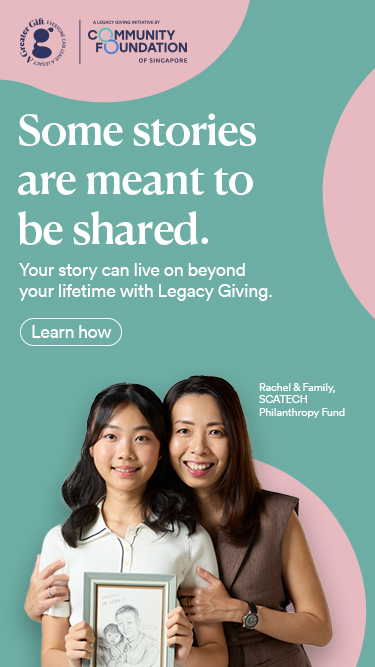938Now: Night Chat with Susan Ng


(From 938Now’s Facebook post on 23 October 2018):
Join us on #NightChatWithSusanNg from 9pm-10pm
Leading our conversation tonight – the work of the Community Foundation of Singapore. Their vision is to inspire giving. And they do this by partnering donors and charities to enhance giving in Singapore.
Catherine Loh, Chief Executive Officer, Community Foundation of Singapore tells us more about the work they’ve done over the last 10 years and how they’ve encouraged philanthropy in Singapore.
Ten years after Lim Wei-Jen founded his wealth management company Liontrust, he started the Liontrust Charity Fund with the Community Foundation of Singapore. This was his personal long-term goal – to give back to the community when the company started doing well. Managing Director Ashley Ong also believes in helping people, a value that is important to the company.
Liontrust supports charities focusing on children from disadvantaged backgrounds and with special needs. https://liontrust.com.sg/
Community Foundation of Singapore is a registered charity with Institution of Public Character status. For more information visit cf.org.sg.
Encore broadcast of the interview will be on Saturday 27 October 2018, 9–10pm.
(From 938Now’s Facebook post on 23 October 2018):
Join us on #NightChatWithSusanNg from 9pm-10pm
Leading our conversation tonight – the work of the Community Foundation of Singapore. Their vision is to inspire giving. And they do this by partnering donors and charities to enhance giving in Singapore.
Catherine Loh, Chief Executive Officer, Community Foundation of Singapore tells us more about the work they’ve done over the last 10 years and how they’ve encouraged philanthropy in Singapore.
Ten years after Lim Wei-Jen founded his wealth management company Liontrust, he started the Liontrust Charity Fund with the Community Foundation of Singapore. This was his personal long-term goal – to give back to the community when the company started doing well. Managing Director Ashley Ong also believes in helping people, a value that is important to the company.
Liontrust supports charities focusing on children from disadvantaged backgrounds and with special needs. https://liontrust.com.sg/
Community Foundation of Singapore is a registered charity with Institution of Public Character status. For more information visit cf.org.sg.
Encore broadcast of the interview will be on Saturday 27 October 2018, 9–10pm.
- Related Topics For You: CHARITY STORIES, CHILDREN, DONOR STORIES, DONOR-ADVISED FUND, INCLUSIVITY & INTEGRATION, NEWS, PERSONS WITH DISABILITIES, STORIES OF IMPACT




